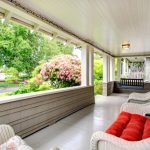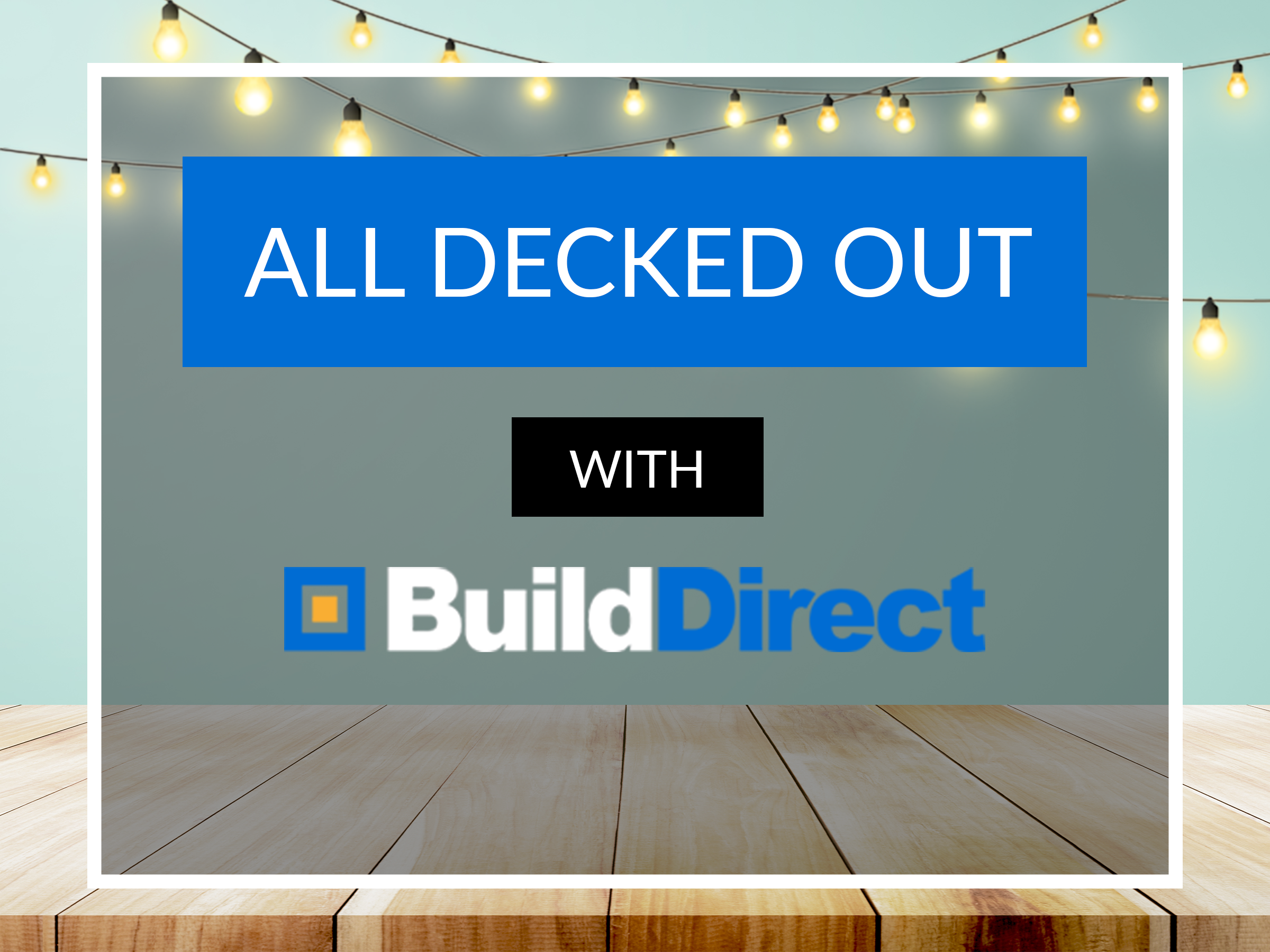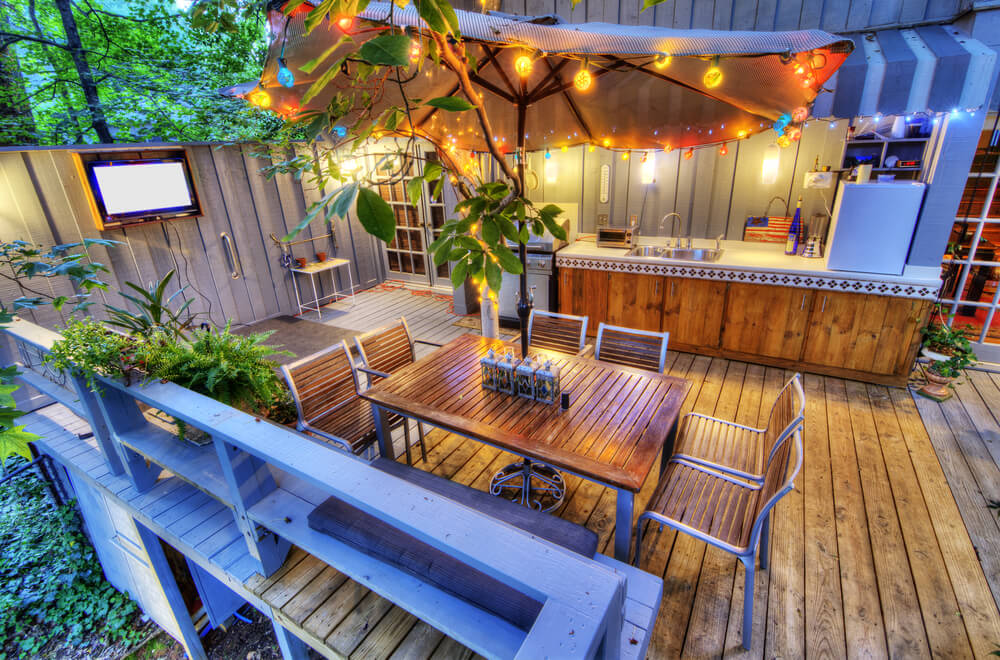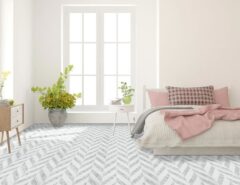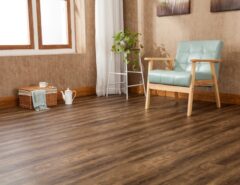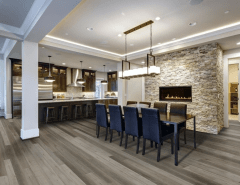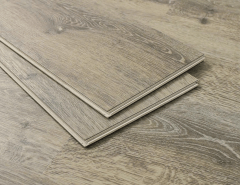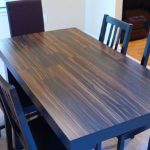Garden decking is a defining feature in an outdoor living space. When you’re mapping out your garden deck project, here are some steps to follow and think about.
Like an outdoor stage to your home and yard, garden decks serve both a decorative and useful purpose. If you’re thinking about building a garden deck for the first time, start the project with a plan in mind. Consider materials, lighting, drainage, and more as you shape your garden decking.
Choose a site
When choosing a site for your garden deck project, you’re limited only by the boundaries of your yard. Since garden decks don’t necessarily have to connect to your home, you can place them where you want in your backyard.
Start by walking through your yard and consider the advantages and disadvantages of different areas. If you want to create a quiet retreat-like area, consider building your garden deck in a secluded corner of the yard. If you plan to entertain guests often outdoors, move it closer to your house.
If you’ve already planted a few flowerbeds or designed landscaping in the yard, for example, consider incorporating these elements into the deck design.
Once you’ve selected a site for your garden deck project, consider how your chosen site will affect the deck’s shape. While many traditional decks are rectangular, you don’t need to hold firm to traditional rectangular garden deck designs when you’re building a deck from scratch. To create a cohesive look with your home, consider crafting a deck shape that incorporates the style and lines of your house. If your yard has some gentle slopes or areas that are higher or lower than others, factor those elements into your design naturally by adding steps and multiple levels. To incorporate a mature flower bed into the design, consider a curved shape that flows easily into existing landscaping.
Consider the materials
Once you’ve decided on the site and the shape, think about the decking materials that work best for your plan. Choose natural softwoods, such as redwood and cedar, for bright color and natural resistance to rot and predators. Select tropical hardwoods, such as mahogany or tigerwood, for superior hardness, a bold grain, and natural resistance to insects.
For a contemporary option with considerable staying power, consider manmade composite decking. Not only does composite decking remain more durable than several types of natural woods, but it also requires little maintenance needs to look its best.
Plan for good drainage
After selecting the best materials for your garden deck project, you certainly don’t want compromise them by running into issues with drainage problems. If your garden decking ideas include built-in planters and beds, drainage is necessary.
If you want to use large pots and planters, choose ones with drainage holes in the bottoms of the containers. Add a layer of rocks or gravel at the bottom of the planters to make sure your plants don’t get waterlogged.
For built-in garden beds, you’ll want to follow the general guidelines for building raised garden beds. These beds force water to drain down to the topsoil below the deck by relying on landscape fabric, a layer of gravel, and well-draining soil.
Create shady areas
While you’ll almost certainly want to welcome the sun into your garden sometimes, you don’t have to compromise your comfort in the process. Create either permanent or temporary shady areas where you and your family can take shelter from the harsh sun.
Install a fabric canopy for a casual yet effective covering that provides a moderate amount of shade. Add a perimeter around the deck and install outdoor curtains. Install a pergola and plant vines or greenery to filter out sunlight. Use an outdoor umbrella for a simple shade option.
Install lighting
Creating a shady area is important during the daytime, but if you plan to use your garden deck in the evening, you’ll need lighting too. To create the most pleasant atmosphere with lighting, avoid spotlights and go for subtle illumination instead.
For a warm, welcoming look throughout the deck, consider recessed lights or lighting on stair risers. For something more dramatic, go for strips of LED lights, which remain invisible during the day and come to life at night.
To illuminate your garden area, you may want to consider subtle solar lights. For extra charm, bring lanterns and portable shaded lamps into your garden decking design.
Build a privacy barrier
Even if you want to show off your garden deck during the day or at night, consider adding a privacy barrier to increase its functionality and create more usable space. If you prefer a natural barrier with more flexibility, think about adding plants with plenty of vertical reach.
For a mid-range option, consider installing a lattice fence or a trellis. These elements can complement the shape of your deck and add visual interest while increasing privacy at the same time. You can also grow seasonal vines and plants on a trellis or lattice fence to amplify the garden effect and better integrate the garden deck with other landscaping elements in your yard.
Understand building code requirements
When you’re first considering garden decking ideas, it’s OK to let your imagination take hold and lead the way as you plan the ideal design for your yard. Once you start to put your plan into action, however, you should think about building code requirements. Following these code requirements will keep your family and friends safe as you enjoy your new outdoor living space.
In general, decks have to support a dead load of at least 15 pounds per square foot, including both the weight of the structure and any built-in or attached elements. Decks should also support a live load of a minimum of 40 pounds per square foot, which includes people and other temporary items.
You’ll also need to use lumber and other products treated for outdoor use. Be sure to consult your local building code for guidelines specific to your area as well.
A well-designed garden deck can turn a basic patio area into a charming backyard oasis. Once you consider the basic elements of shape, structure, and form, you can plan the garden deck that complements your home and your lifestyle.
Resources:
http://www.popularmechanics.com/home/how-to-plans/how-to/a3490/4275113/
https://www.builddirect.com/Composite-Decking.aspx
http://www.popularmechanics.com/home/lawn-garden/how-to/g92/build-raised-garden-beds/
https://www.builddirect.com/Deck-Accessories/3-Pack-Solar-Landscape-Spotlights/ProductDisplay_11091_p1_10083722.aspx
http://www.bhg.com/home-improvement/deck/ideas/deck-privacy-solutions/
http://homeguides.sfgate.com/building-codes-wood-deck-69843.html
http://homeguides.sfgate.com/choose-deck-size-shape-94879.html
http://www.mylandscapes.co.uk/10-top-principles-in-designing-garden-decking.htm
http://lifehacker.com/182647/how-to-build-your-own-backyard-deck
http://www.gardeningknowhow.com/special/containers/grow-vegetables-on-deck.htm
http://www.thisoldhouse.com/toh/photos/0,,20929375_30346420,00.html
http://www.landscapingnetwork.com/decks/lighting.html
http://www.bhg.com/home-improvement/patio/designs/garden-plans-for-decks-and-patios/




